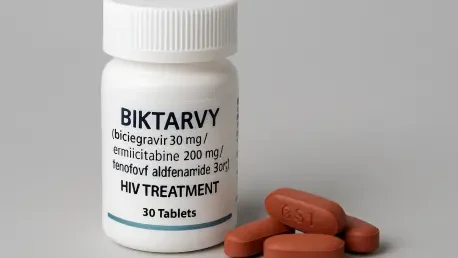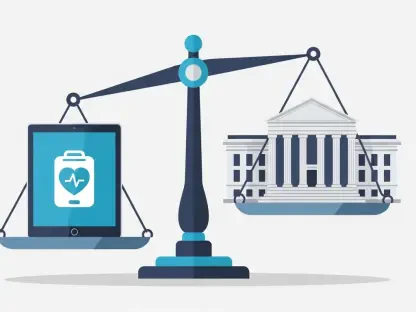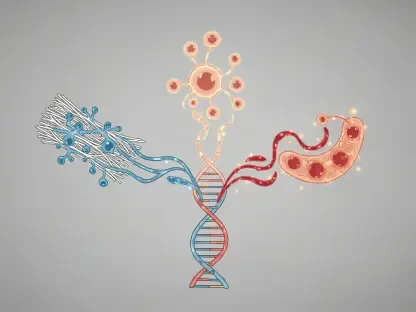I’m thrilled to sit down with Ivan Kairatov, a renowned biopharma expert with extensive experience in research and development, as well as a deep understanding of technological innovation in the industry. Today, we’re diving into the recent FDA approval of Gilead Sciences’ Biktarvy for expanded HIV treatment, exploring its significance for patients, the challenges of viral suppression, and the broader landscape of HIV care. Our conversation will touch on the unique aspects of Biktarvy as a therapy, the impact of this expanded approval, and Gilead’s ongoing commitment to advancing HIV treatment and prevention.
Can you walk us through what Biktarvy is and why it stands out as an HIV treatment?
Biktarvy is a once-daily oral medication that combines three powerful drugs—bictegravir, emtricitabine, and tenofovir alafenamide—into a single pill. This integration is a game-changer because it simplifies the treatment regimen for patients, reducing the burden of taking multiple pills at different times. What makes it particularly unique is its ability to rapidly lower HIV levels in the blood to undetectable levels, which means the virus can’t be transmitted and the patient’s immune system is better protected. It’s also shown a strong safety profile over long-term use, which is critical for a lifelong condition like HIV.
How does this recent FDA approval for expanded use of Biktarvy change things for people living with HIV?
This approval broadens Biktarvy’s reach to include patients with a history of antiretroviral treatment who aren’t currently virologically suppressed, as long as they don’t have resistance to the drug’s components. This is significant because it addresses a gap for those who’ve interrupted treatment or struggled to maintain viral suppression. It offers a reliable option for restarting therapy, helping more individuals achieve long-term control over the virus and reduce the risk of further health complications.
Gilead highlighted that only about 65% of HIV patients in the US are virally suppressed at any given time. Why is this statistic so concerning?
That figure is alarming because viral suppression is the cornerstone of managing HIV. When the virus isn’t suppressed, it can replicate, damage the immune system, and increase the risk of transmission to others. It also raises the chance of developing drug resistance, which limits future treatment options. This statistic reflects systemic challenges like access to care, stigma, and personal barriers that prevent consistent treatment, and it underscores the urgent need for solutions that help more people stay on track with their therapy.
What kind of evidence backed the FDA’s decision to expand Biktarvy’s indication?
The FDA’s decision was grounded in robust data from two studies involving treatment-naïve patients. These studies demonstrated Biktarvy’s ability to achieve rapid and sustained viral suppression, maintaining its effectiveness over time. Perhaps most impressively, over a five-year period, there were zero cases of treatment-emergent resistance to Biktarvy. This is a huge deal because resistance can derail treatment plans, so having a drug with such a strong track record offers confidence to both patients and providers.
Jared Baeten from Gilead emphasized ‘person-centric advances’ in HIV care. How do you interpret this concept in the context of Biktarvy?
To me, ‘person-centric advances’ means designing treatments that prioritize the individual’s needs, lifestyle, and challenges. Biktarvy embodies this by offering a simple, once-daily pill that reduces the complexity of managing HIV. It’s not just about suppressing the virus—it’s about fitting into a patient’s life seamlessly. This approach acknowledges that successful treatment isn’t just clinical; it’s about supporting the whole person, especially for those restarting therapy after an interruption.
Since HIV is a major focus for Gilead, can you shed light on their broader efforts in this area beyond Biktarvy?
Absolutely, Gilead has been a leader in HIV care for years, working on both treatment and prevention. They’re exploring a range of therapies to address different patient needs, from daily pills to longer-acting options. A recent milestone is the FDA approval of Yeztugo, a twice-yearly injectable for HIV prevention, or PrEP. This offers six months of protection, which is a huge step forward for accessibility and convenience, especially for those at high risk who might struggle with daily medication adherence.
Looking ahead, what is your forecast for the future of HIV treatment and prevention innovations?
I’m optimistic about the trajectory of HIV care. We’re likely to see even more long-acting treatments and prevention options, like injectables or implants, that further reduce the burden of daily dosing. There’s also exciting research into therapeutic vaccines and potential cures, though those are longer-term goals. I believe the focus will remain on personalized approaches—tailoring therapies to individual circumstances—and addressing disparities in access to care. If we can combine innovation with equity, we could move closer to ending the HIV epidemic in our lifetime.









